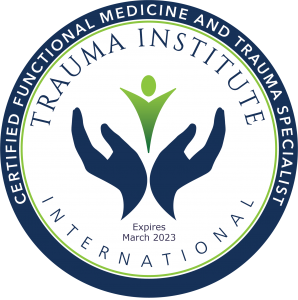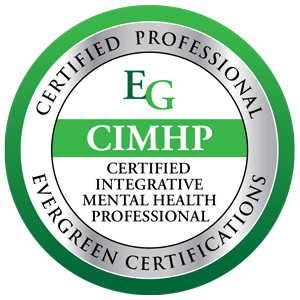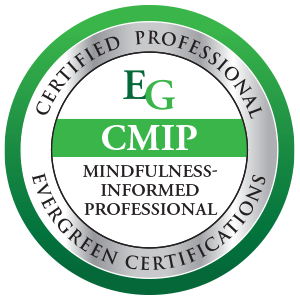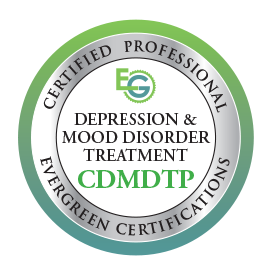Therapy for different mental health conditions
Generally there is consensus that talking therapies or psychological therapies are an appropriate response for mental health issues. Some talking therapies such as counselling allow healing space through talking. Others like CBT and MBCT (recommended by NICE) use perceptual and behavioural change to manage conditions. Psychoanalysis based therapies look at patterns and background to help enable choice and change.
In trauma work it has been recognised since the 90’s that mind and body are very much one entity and therefore need a holistic, yet science based approach. This in some ways is the 3rd way – holistic but evidence based!
Mindfulness Informed Professional
Medical versus holistic model in mental health therapy
CBT and cognitive psychology tend to be close to the medical model as used by medical practitioners, such as the NHS. Therefore they view mental health issues as illnesses.
Counselling and most positive psychology / psychotherapy models look at positive change and where you want to move to, rather than considering you to be ill.
Psychoanalysis considers mental health issues to be the result of attempts to survive and adapt to the stresses and challenges of the human condition, and not really illnesses at all.
Forms of depression including bipolar depression are usually either treated directly with cognitive behavioural therapy based psychological therapies or high intensity psychological interventions (as recommended by NICE), or it can be addressed by looking more holistically at the person using counselling, psychotherapy methods, mindfulness and other therapies chosen to meet the needs of the individual client. Other NICE recommended methods include behavioural therapy focusing on relationships, psycho-dynamic psychotherapy, couples behavioural therapy or counselling. http://www.nice.org.uk/guidance/CG90/chapter/1-Guidance#psychological-interventions
Generally therefore there are three options, but of course these can be combined into a course of treatment so it is not “either or”.
1. CBT based psychological therapies as recommended by NICE and the NHS, although this is often a rather “cold” and functional approach, and does not really look in any depth as to personal patterns and causation. NICE recommend 16-20 sessions.
2. Psychoanalysis, counselling and psychotherapy based work looking at the individual and working them them rather than “treating” the depression. In other words looking at the person, not the symptoms. Mindfulness, meditation, hypnotherapy and and other methods like life coaching can be useful too. NICE do recommend “short term” (16-20 sessions) psycho-dynamic therapy.
3. Cognitive Behavioural Analysis, a hybrid of Cognitive behavioural theory and psychoanalytic theory, which combines looking at function, and looking at why. It has a strong emphasis on relationships, experiences, personal understanding (perception / interpretation) and behaviour. It incorporates NICE recommended features of psycho-dynamic, cognitive behavioural and relationship behavioural therapy. Some studies have shown success rates of 85% combining forms of cognitive analysis with medication support from a GP [Keller, M. et al. A Comparison of Nefazodone, the Cognitive Behavioural-Analysis System of Psychotherapy, and Their Combination for the Treatment of Chronic Depression. New England Journal of Medicine Volume 342:1462-1470 May 18, 2000. ]
In reality the best approach is usually to combine elements of all three to help the individual, since no two clients are the same!! Studies indicate that there is no clear “better” method comparing behavioural and other psychological therapies* Likewise there is little clear evidence to suggest “3rd way” versions of CBT are better than original CBT methods (does not examine Cognitive Behavioural Analysis which is different and has good evidence of additional success) ^.
* http://www.cochrane.org/CD008696/DEPRESSN_behavioural-therapies-versus-other-psychological-therapies-for-depression ^ http://www.cochrane.org/CD008704/DEPRESSN_third-wave-cognitive-and-behavioural-therapies-versus-other-psychological-therapies-for-depression
Other useful approaches including relaxation techniques such as self hypnosis or hypnotherapy, which reduces symptomatology but not as much as linked up psychological therapy. http://www.cochrane.org/CD007142/DEPRESSN_relaxation-for-depression
It may be worth noting that studies do show that receiving short term psycho-dynamic therapy (such as psychoanalysis or cognitive behavioural analysis) does lead to greater improvement in patients compared with control groups for persons with common mental health issues. http://www.cochrane.org/CD004687/DEPRESSN_short-term-psychodynamic-psychotherapies-for-common-mental-disorders
Mind-Body Holistic model
The mind-body model of mental health posits that mental and physical health are interconnected and influence each other. This model challenges the traditional separation of mind and body, recognizing that our thoughts, emotions, and behaviors can have a profound impact on our physical health, and vice versa.
Here’s some evidence supporting the mind-body model:
- Stress and Physical Health: Chronic stress has been linked to a range of physical health problems, including cardiovascular disease, weakened immune function, gastrointestinal issues, and chronic pain.
- Placebo Effect: The placebo effect demonstrates the power of the mind to influence physical health. Studies have shown that even when given a placebo (a sugar pill or sham treatment), people can experience real improvements in their symptoms due to their belief in the treatment.
- Mind-Body Therapies: Practices like yoga, meditation, and mindfulness have been shown to have positive effects on both mental and physical health. These practices often focus on cultivating awareness of the mind-body connection and promoting relaxation and stress reduction.
- Psychoneuroimmunology: This field of research explores the interactions between the nervous system, the immune system, and psychological processes. Studies have shown that stress and negative emotions can suppress immune function, while positive emotions and relaxation techniques can enhance it.
- Brain-Body Pathways: Research has identified specific pathways through which the brain and body communicate, such as the hypothalamic-pituitary-adrenal (HPA) axis, which plays a key role in the stress response.
- Trauma Research: Studies on trauma have shown how traumatic experiences can affect both mental and physical health, leading to conditions like PTSD, chronic pain, and even changes in brain structure and function.
- Chronic Pain: Chronic pain is often influenced by both physical and psychological factors. Mind-body therapies and psychological interventions can be effective in managing chronic pain.
- Gut-Brain Connection: Research on the gut-brain connection has revealed how the gut microbiome can influence mental health, and vice versa. This highlights the intricate connection between our digestive system and our emotional and cognitive experiences.
The mind-body model has significant implications for mental health treatment and prevention. It suggests that addressing mental health concerns requires a holistic approach that considers both psychological and physical factors. This may involve integrating traditional therapies, such as psychotherapy and medication, with mind-body practices, lifestyle modifications, and other complementary approaches.
The growing evidence for the mind-body model underscores the importance of taking a holistic approach to mental health, recognizing the interconnectedness of our thoughts, emotions, behaviors, and physical well-being.
Medical supervision
Whatever model you adhere to or believe in, it is always sensible to maintain medical support via your GP since this enables emergency support, and is often the gateway to other services.
Private therapy for mental health conditions
Whether you are suffering from Bipolar, depression, anxiety, a mood disorder or a personality disorder, you may wish to use medical treatment only (drugs and CBT) or you might wish to explore the options in the private sector. Often therapists like Stuart combine the CBT based psychological therapies recommended by NICE with other more holistic methods including mindfulness and psychoanalysis.
You might also be suffering from other less clear problems life stress, anger, low confidence, poor self esteem or other symptoms associated with mental health or emotional difficulties.
Our service is run by Stuart, an Advanced Certified Trauma Specialist. He works with trauma cases and ND cases only, although he accepts selective cases where there is co-morbidity with other mental health conditions. Indeed other diagnosis is common in cases of complex trauma.
Who provides support in Edinburgh?
There are many private therapists in the area. Stuart initially trained in psychoanalysis, stress counselling, clinical hypnotherapy and health education in a combined diploma 1993-96, (externally NVQ accredited and assessed diploma course and CNHC accreditation route via SSM) and requiring over 1,000 client hours under supervision.
Stuart is a CNHC registered hypnotherapist (voluntary regulator) and is a member of the CNHC AR scheme. (AR is the accredited register system maintained by the Professional Standards Authority). He is professionally registered with a number of professional bodies, many are CNHC accreditation / verification routes, including the organisation he trained with.
Stuart provides hypnotherapy, psychoanalysis, stress counselling and other therapies he has trained in post graduating, including counselling, psychotherapy, mindfulness, NLP, life coaching and CBT. He has completed extensive CPD training including a MSc Psychology. He has also completed accreditation in counselling, psychotherapy and hypnotherapy with the NACHP.
Stuart has now been in practice for over 30 years and is a specialist, no longer doing general therapy work. Stuart is an Advanced Certified Clinical Trauma Specialist and therefore only works with cases that relate to complex trauma. Full range of competencies and qualifications HERE
Stuart has a clinic in Edinburgh and also sees clients online from around the world.
Contact via the contact us page HERE






